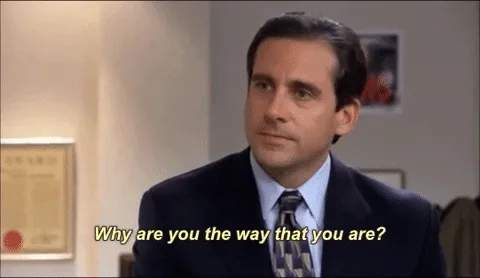Abby Mello directs the HR development masters program at Towson University, and she’s tired of the “hackneyed trope” of HR in television and film. And Mello knows a thing or two about what’s funny; she’s also a stand-up comic.
While many HR professionals are dynamic individuals interested in helping employees do their best work, references to the profession in pop culture tend to rely on stereotyping HR reps as sad, boring, paper-pushing agents for the company, often out to get employees.
“There’s no three-dimensional characters that do HR and are actually doing training and development or leadership coaching,” Mello said. “They’re all just the person who’s like, ‘Hey, guys, you can’t say that.’”
On the screen. She said the “us vs. them” mentality is showcased “to death” by branch manager Michael Scott and his workplace nemesis, Toby Flenderson.
“In a show like The Office, with an ensemble cast where everybody is either friends or frenemies…you’ve got Toby who’s just this island unto himself, and I think that is actually a pretty accurate portrayal of what a lot of people think of their own HR departments, as sort of this other group that’s not integrated with everybody else,” Mello said. “We have to have this training now because Toby said that we have to have this training now. We have to fill out this paperwork because Toby said we have to.”
Toby’s mannerisms in The Office also reflect the old chestnut of HR functionaries as “low energy, kind of sad, boring personalities,” Mello said. Consider Barbara in HBO’s Hacks—the fictional talent agency HR representative’s deadpan affect in her meetings with agent Jimmy LuSaque perfectly captures pop culture’s HR caricature.
Even HR at the fictional International Secret Intelligence Service in the animated show Archer relies on inverting those stereotypes to depict its HR director Pam.
Quick-to-read HR news & insights
From recruiting and retention to company culture and the latest in HR tech, HR Brew delivers up-to-date industry news and tips to help HR pros stay nimble in today’s fast-changing business environment.
“She’s the anti-Toby and Barbara. She’s very brash. She’s covered in tattoos. She does bare-knuckle boxing as a hobby. She’s constantly sexually harassing everyone,” Mello said. “The humor there is that she is the opposite of the expectation of what the HR person would be.”
HR is difficult. Mello suggested these portrayals of HR on TV likely reflect the misunderstood nature of the function. The “scapegoating” of Toby by Michael builds on employee perceptions of what HR does and its role in managing company policies and change.
“It’s just a really misunderstood type of role, and nobody really knows what [HR professionals] do,” she said. “You’re left with these stereotypes that you see on TV, or negative personal experiences where the only time you saw your HR person was when you’re in trouble or when they did major layoffs, or…that recruiter who never calls you back.”
HR professionals have to execute unpopular decisions, convey inconvenient company policies to employees, and often are the face of change at organizations. It can be a heavy burden.
“There’s always something going on,” she said. “You have to manage people’s expectations; you have to try to motivate them to do something that they either don’t want to do or [to] do something differently…you really are managing change and attempting to influence people.”
Mello said she’s waiting for more dynamic depictions of HR pros proactively thinking through how to improve engagement, attract different talent, or train your high performers. Over here at HR Brew, we’re still pitching our idea for Netflix’s next big hit: HR at Los Pollos Hermanos.—AD
